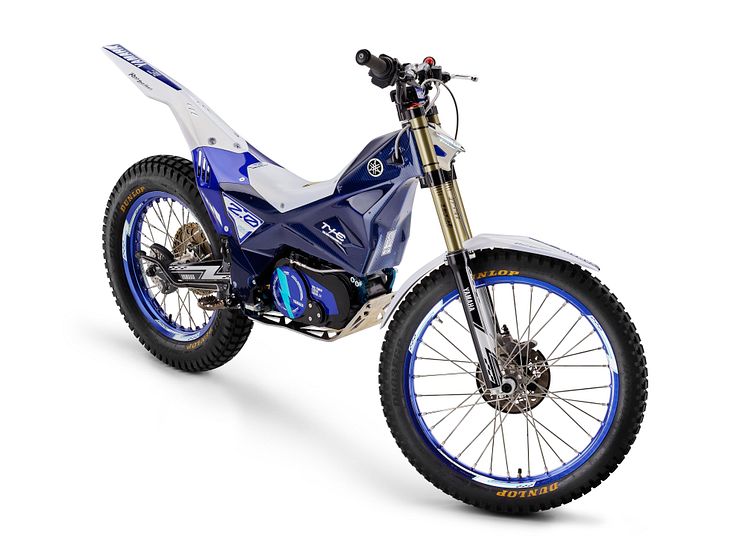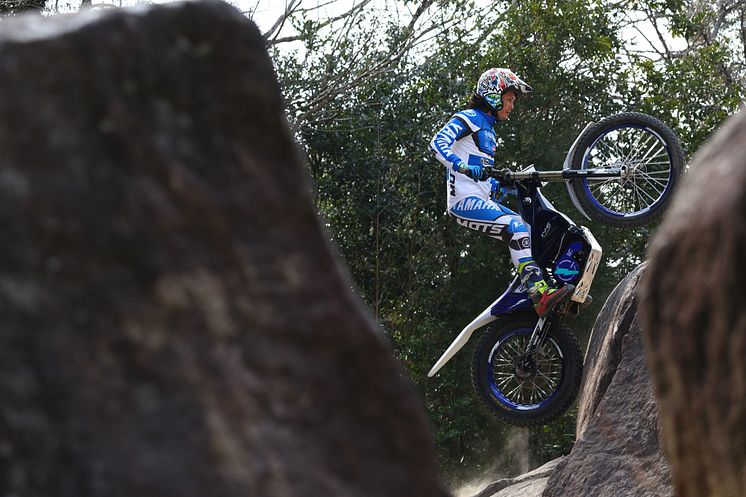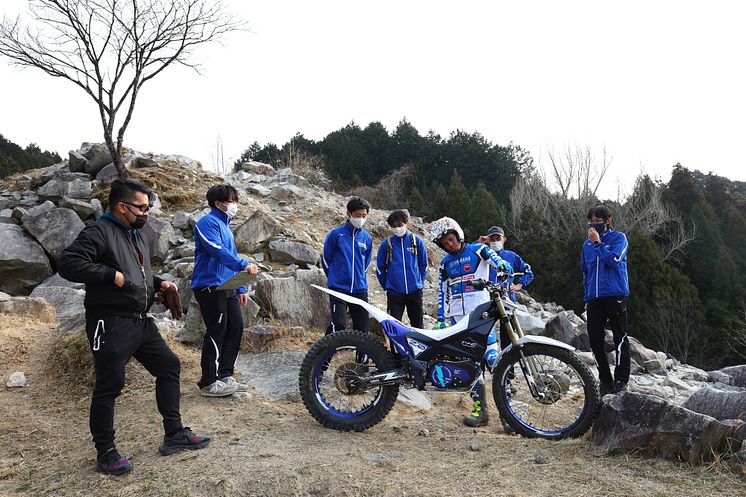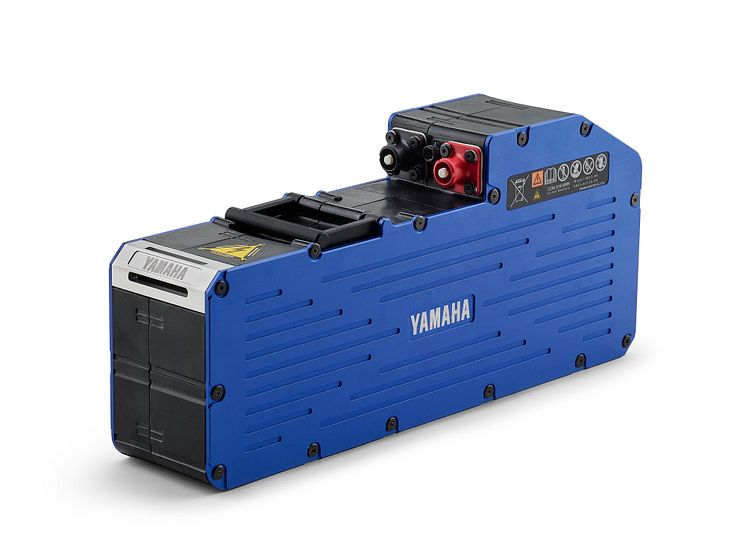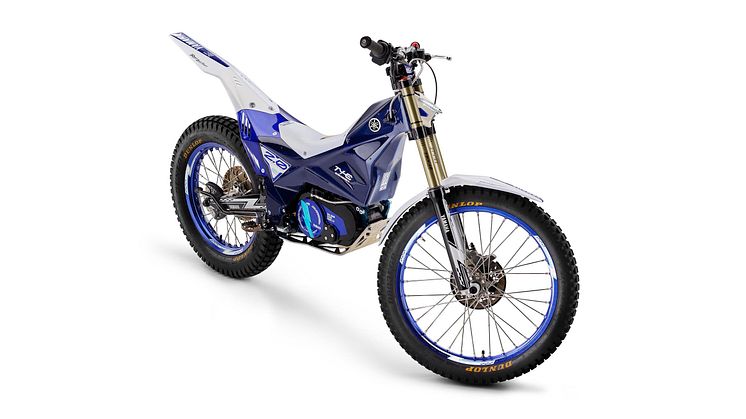
News -
Seeking to Deliver Fun that Surpasses What Internal Combustion Engines Can Provide Yamaha Motor Newsletter(Apr. 25, 2022 No. 98)
Yamaha Motor has developed the TY-E 2.0 electric trials bike which approaches achieving carbon neutrality by proposing the new value of EV-powered motorcycling fun. For this issue, we sat down with the project leader directing the development of this updated TY-E and asked about the project’s background and goals, the bike’s key features, and more.
Also, the TY-E 2.0 is scheduled to participate in several rounds of the 2022 FIM Trial World Championship alongside other electric and gas-powered models.
Ready to Contest Select Rounds of the Trial World Championship

“Electric vehicles are often spoken of in an environmental context, but they have their own unique points of appeal, like the output characteristics they are capable of, for example,” says Toyota Takeshi, the lead developer of the TY-E 2.0. “They have the potential to deliver more fun and performance than current internal combustion engines can if we move away from trying to make them all-conquering and instead narrow things down and focus on specialization.” As one route toward achieving that goal, he is looking to demonstrate the possibilities within electric powertrains through trials competition, where long range is not a vital factor.
Toyota’s challenge began in 2018 when he and a small group of likeminded engineers began developing an electric trials bike under an in-house program called “Evolving R&D,” which allows and encourages Yamaha Motor employees to undertake R&D pursuits of their own choosing. After some time, the results of their work and its future potential were recognized by the company and the development of an electric trials bike kicked off as an official project. In 2018 and 2019, Yamaha Motor entered the FIM Trial-E Cup with the first TY-E and finished as the runner-up for two consecutive years.
“Because we were aiming to be the best in the world, it was a very frustrating and disappointing way to end,” confesses Toyota. But today, three years later, the second version of the TY-E features several updates and upgrades in pursuit of even more fun and greater competitiveness.
Last year, the FIM announced a change in its regulations for trials, gradually phasing out the Trial-E Cup series solely for electric vehicles and bringing mixed competition between electric and gasoline-powered entries to the 2022 Trial World Championship, where Yamaha Motor plans to enter the TY-E 2.0 into certain rounds of the six-round series.
A Different Approach Toward Carbon Neutrality

“Because of our emphasis on reducing weight, the bike’s current maximum output doesn’t quite reach what internal combustion engines put out,” explains Toyota. “However, we focused on careful control of the electric motor’s performance to compensate for the difference in output.”
The team paid particular attention to the vertical load on the tires and the control algorithms employed with the TY-E 2.0 further enhance the bike’s response and performance in line with the rider’s intentions. The refined control has improved traction by accurately reading the changes in grip—at a level difficult even for top riders to pick up—and optimizing the bike’s drive force. “This is a vital key to surpassing internal combustion engines on the world stage,” says Toyota.
Moreover, the bike has seen significant progress with the new monocoque composite-laminate frame and the battery, which received optimizations for output and capacity. The new unit boasts 2.5 times greater capacity than the previous TY-E’s battery while keeping the weight gain down to around 20%. In addition to an output density exceeding industry standards, cooling performance has also been greatly improved, giving the TY-E 2.0 the ability to produce high output for sustained periods of time.

Last year, Yamaha Motor reviewed its Environmental Plan 2050 and set a new goal of aiming for carbon neutrality throughout all of our business activities—including across the life cycles of our products—by 2050. The TY-E 2.0 project and its FUN × EV development concept shoulder big expectations as another approach for achieving this goal.
Introducing the TY-E 2.0 Electric Trials Bike

|
Message from the Editor Toyota-san said that, “In the mass-production EV market, there is a general assumption that batteries inevitably become heavier when seeking higher output, but if we always just accept compromise there, we’ll never see any forward progress.” When we asked what the most advanced part of the new TY-E was, he answered “the battery” without a moment’s hesitation. This second version represents another big step towards realizing light, powerful, and fun electric vehicles from Yamaha. Please watch this space and the TY-E 2.0’s foray into the Trial World Championship this year! Kawai Maiko |
